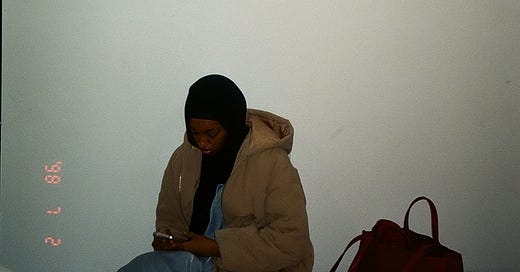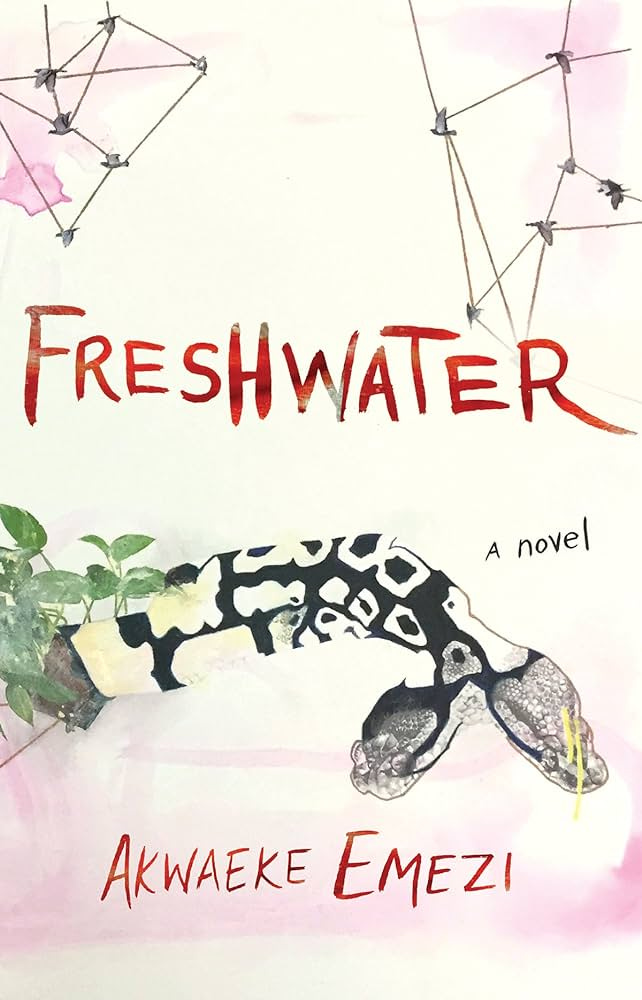Deixis Journal Archive
An excerpt from Casiel J. Sanchez’s “Movement”.
Featured in Deixis Journal No.1
***
“A few days ago, traveling in the back seat bound for my sister’s apartment, I noticed something I would do when I was younger before I needed to pay attention to the road. I would stare at the sky and see the clouds shuffle without hesitation. The next day as I was tending labor, spraying one dish at a time, I heard a song say movement changes the perception of time. The next day as I was establishing my new habit of working out, the app instructor said motion creates emotion. Change is good: moving is good; I am good. The more movement I produce, the more I learn.”
An Honorific Mode of Forgetfulness
by Halima Abukar
Our memories often aren’t ours. When we dress our wounds and stuff them with relationship, and when the wound heals and dries, the ancestor and the womb are the same.
Salting the wounds, and icing the passages of blood are honorific modes of forgetfulness, our connections between and never through nor out. When we arise and when our concentrations emit into the atmosphere, the ancestor and the womb are the same.
Listen to the sound of the wind, it is telling you how to behave. One foot in front of the other, and walk slowly. When your diaphragm is tense, and you’ve had a crick in your neck for two days, you know the sneeze that did it, that triggered that cold, that triggered the loss of hearing in your right ear. In dewy mornings the condensation of the mornings dull as you reminisce of years prior, of school buses and insecurity, of adolescence and angst. Nothing will ever be as important as those times, where you had no idea what was happening in your body, or in your head. You could never predict the questions that you’d be asked, when you returned to the sandy hometown of your parents’ childhood.
“Do you want to go to Heaven?”
My cousin asked me one morning, if it came to defend the money of this country and the country of America, which would I defend? “This country,” I said. But his sister looked at him and said, “but she was born in America. She’s going back there, of course.”
Deixis Book Club
Not a real book club (yet), just a bit about what we’re currently reading.
Halima recently read the book, Freshwater by Akwaeke Emezi
This book was absolutely transformative, and alternates perspectives and voices frequently. It starts off with the story of a girl and her family in Nigeria. Ada has multiple personalities; gods; ogbanje that lie dormant (exist without her knowledge, as much of who we are does) inside of her until a traumatic event at university in Virginia brings protection, strife– the id battles with the ego consistently in determining points of pleasure and pain, and awakens the ogbanje. Who is Ada with the ogbanje? Who is she without their protection, without her abiding by their law? Who can she be in the presence of another? The language Akwaeke uses in her debut novel is riddled with Nigerian cultural and spirituality, suspended between plainness and poetry that I often stopped to admire the balance it accomplished.
The spirit is the only reality, and Ada is only flesh…
*Some graphic content
-Halima Abukar
An Excerpt from Freshwater by Akwaeke Emezi
“Meanwhile, we were wrenched, dragged through the gates, across a river, and through the back door of the thin woman's womb, thrust into the rippling water and the small sleeping body floating within. It was time. When the fetus had been housed, we were allowed freedom, but it was going to be alone, no longer flesh within a house but a house itself, and we were the one meant to live in it. We were used to the warm thuds of two heartbeats separated by walls of flesh and liquid, used to the option of leaving, of returning to the place we came from, free like spirits are meant to be. To be singled out and locked into the blurred consciousness of a little mind? We refused. It would be madness.”






